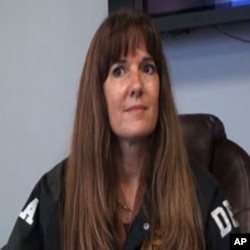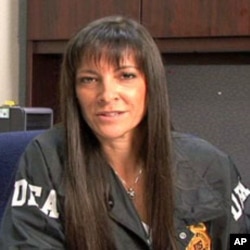The lead agency in the U.S. fight against narcotics trafficking is the Drug Enforcement Administration, known as DEA. Agents often work undercover to catch drug dealers in the act of selling their illicit products, making it a challenging and risky job, mostly carried out by male agents. Of the agency's approximately 4,800 agents, only around 450 are female, but, the DEA would like to improve that ratio.
When DEA agents take down drug traffickers, most of the agents participating in the action are male, but women often play an important role, both in the field and in various aspects of the investigation.
Having women in the field can make a difference in some cases, but DEA has very few female agents to deploy and is now making an effort nationwide to attract more women to its ranks.
Although law enforcement agencies have long had an image of being male-dominated organizations in which tough guys flourish, today's DEA is an organization in which extensive training and teamwork are emphasized above all. DEA agents, male and female, respect each other and support each other in the field, according to 23-year-veteran agent Luann Tandy.
"Whether they are men or women, we are all trained equally. We are all trained to handle the situations that we need to handle, we are all part of a group in which everybody is competent to be out doing what they are doing," she said.
Tandy has spent a lot of time in one of the agency's most challenging roles, undercover operative. She has had to convince drug dealers that she is part of their world in order to draw them into deals that can be recorded for evidence and used against them after they are arrested. It is potentially dangerous work that Tandy says requires some acting skill.
"Even though I would go undercover playing an American female in the drug trade, I am not an American female in the drug trade so I need to make sure I am convincing a bad guy, a streetwise bad guy, that I am," she said.
But with women comprising less than ten percent of agents, DEA needs a better balance of sexes, according to Agent Violet Szeleczky. "The bad guys are male and female, so you need the good guys to be male and female," she said.
Although Violet Szeleczky says most routine DEA investigative work is not that exciting, the occasional danger does intimidate some women and hampers efforts to recruit more.
"Every day we go out on the street, our lives could be in danger because whenever you are dealing with drugs, whenever you are dealing with a product that can make people rich, they are willing to harm anyone who comes in their way. We are looking for those people who want to accomplish our mission and are willing to deal with that danger," she said.
A special challenge for many DEA women is balancing their job fighting drug rings with being a mother raising children, according to Szeleczky. "A DEA agent and a mother has to really juggle two, three times more than a male DEA agent would have to juggle, family and job," she said.
DEA does make allowances, especially for pregnant women, and Luann Tandy says she has managed well since she sees her work as all about protecting children. "At the end of the day I go home and I hope that somebody's kids, and my own included, are safer," she said.
The demand for well-trained agents has grown in the Houston region since it was designated last year as the spearhead for a multi-agency federal effort aimed at curbing the activities of Mexican organized crime groups smuggling marijuana, cocaine, heroin and other drugs across the US/Mexico border.
Much of the contraband makes its way to Houston for repackaging and distribution to other parts of the United States. Competition between rival drug gangs has spawned a wave of violence in Mexico and there have been more than a few drug-related killings in the Houston area as well in recent months.










